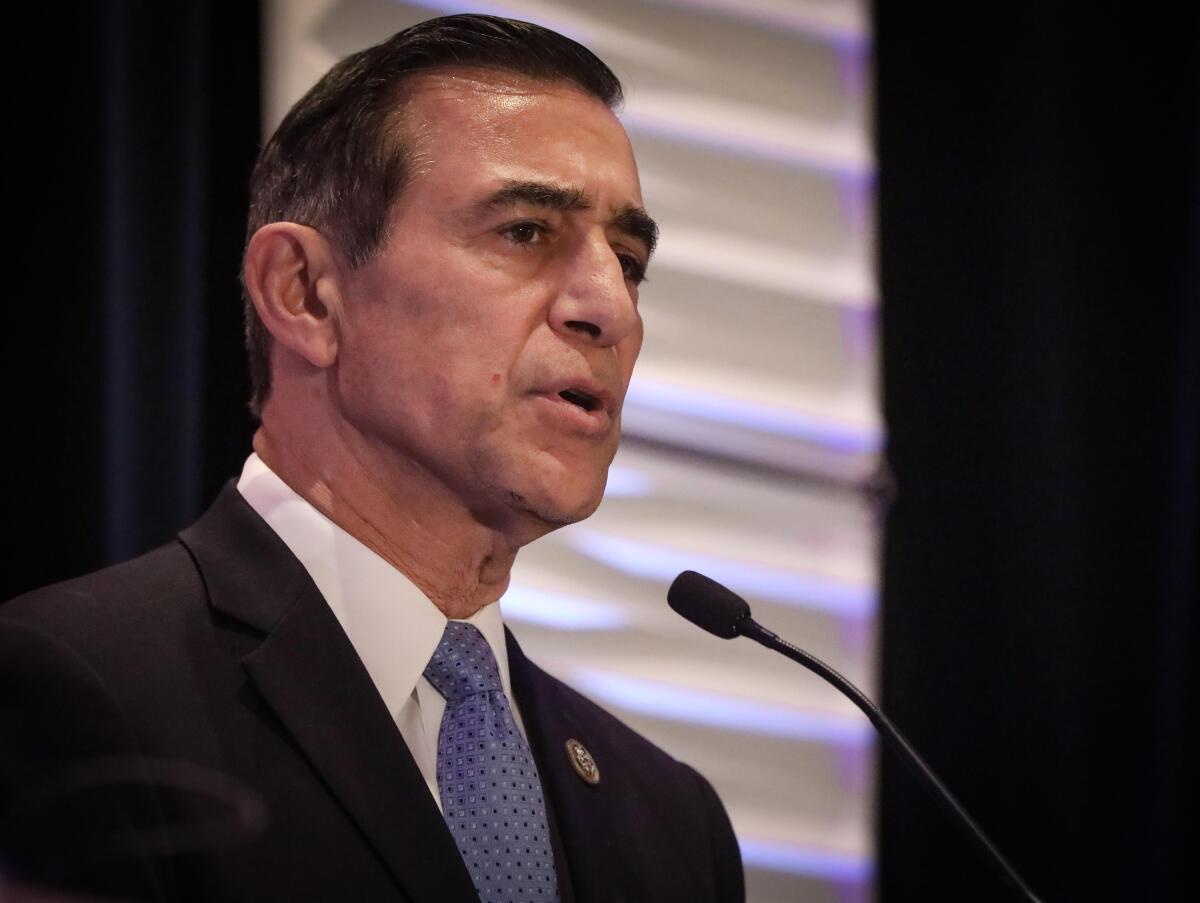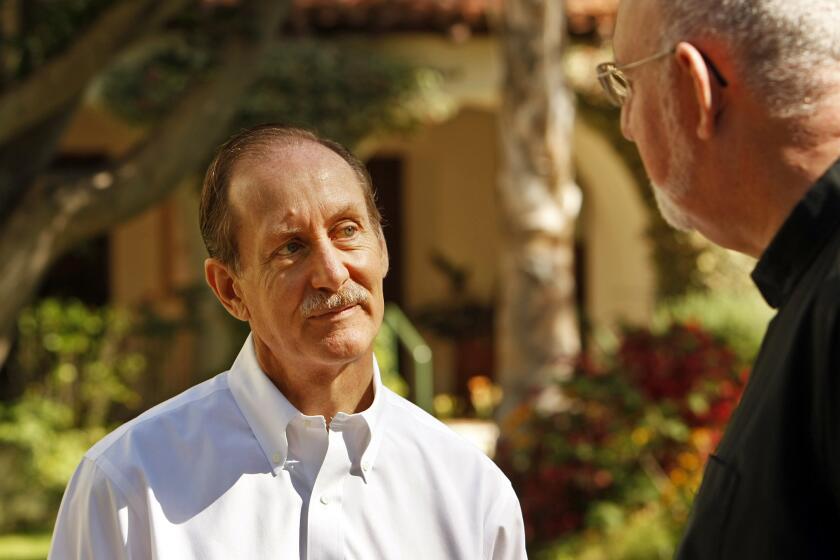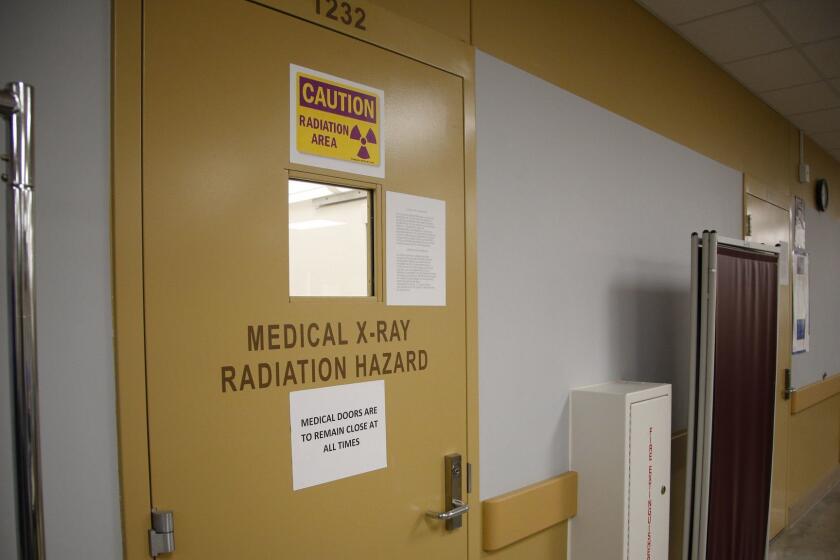San Diego congressional candidates spent millions on primary; Duncan Hunter again draws FEC attention

- Share via
SAN DIEGO — The candidates who captured the top spots in the races for San Diego’s five congressional seats together spent more than $7.3 million in the weeks surrounding the March primary.
Much of that spending focused on the region’s two battleground contests: the races for the 49th and 50th districts.
The race for the vacant seat in the 50th District — which includes east and north inland San Diego County and a southern portion of Riverside County — saw the top two candidates spend nearly $5 million, according to Federal Election Commission data for the period between Feb. 13 and March 31.
Republican Darrell Issa, who represented San Diego County for 18 years prior to leaving his seat in 2018, spent $4.3 million, the most of any candidate.
Much of the $3.2 million he raised came from himself. He ended the period with $353,991 cash on hand.
Issa’s substantial spending allowed the former congressman to claim the second primary spot and edge out conservative talk show host Carl DeMaio, who finished third and spent $962,485 during the same period.
Santa Monica City Manager Rick Cole resigned Friday, citing divisions over drastic budget cuts as the novel coronavirus decimates the wealthy beach city’s tax revenue.
In contrast, Democrat Ammar Campa-Najjar, a lecturer at San Diego State University who captured the top slot in the primary, spent $630,216 and raised $357,639. His campaign ended March with $431,851 cash on hand.
In other campaign finance news, former Rep. Duncan Hunter has again caught the attention of the FEC.
Hunter resigned from his 50th District seat in January and was sentenced in March to 11 months in prison for one felony count of conspiracy to illegally convert campaign funds to personal use.
On April 14, the FEC sent Hunter’s campaign a letter requesting more information about what appeared to be excessive and impermissible contributions listed in the campaign’s financial disclosure covering the last three months in 2019.
Specifically the letter requested information about contributions from four donors that exceeded the $2,800 limit an individual can contribute per election to candidate committees such as Hunter’s.
One of the donors gave a total of $3,900 for the primary election, another contributed $4,401 for the primary, and the other two contributed $2,850 and $3,000, respectively.
Detainees held by ICE and the U.S. Marshals Service are concerned that people who tested positive for the virus have been returned to their units too quickly.
The letter noted that the excessive amount of each contribution must be refunded to the donor, re-attributed to another person, such as a spouse, or re-designated to a different election in which Hunter was a candidate.
Campaigns are not allowed to receive or re-designate contributions for an election in which the candidate is not running, according to the letter.
Hunter announced the end of his candidacy on Dec. 6. Regulators noted in the letter that his campaign was required to refund contributions that were designated or re-designated for the 2020 general election.
It appeared the campaign had not done so for contributions from four donors totaling $4,001.
“Since the candidate is not seeking office and will not participate in the general election, any contribution received for the general election must be returned to the donors,” the letter said.
Campaigns can’t use general election contributions to pay primary debts and obligations. The letter asks Hunter’s campaign to provide copies of any refunded checks or letters re-attributing the funds.
The FEC set a deadline of May 19 for Hunter’s campaign to respond.
A representative for the Hunter campaign declined to comment when contacted by a Union-Tribune reporter.
More to Read
Sign up for Essential California
The most important California stories and recommendations in your inbox every morning.
You may occasionally receive promotional content from the Los Angeles Times.














